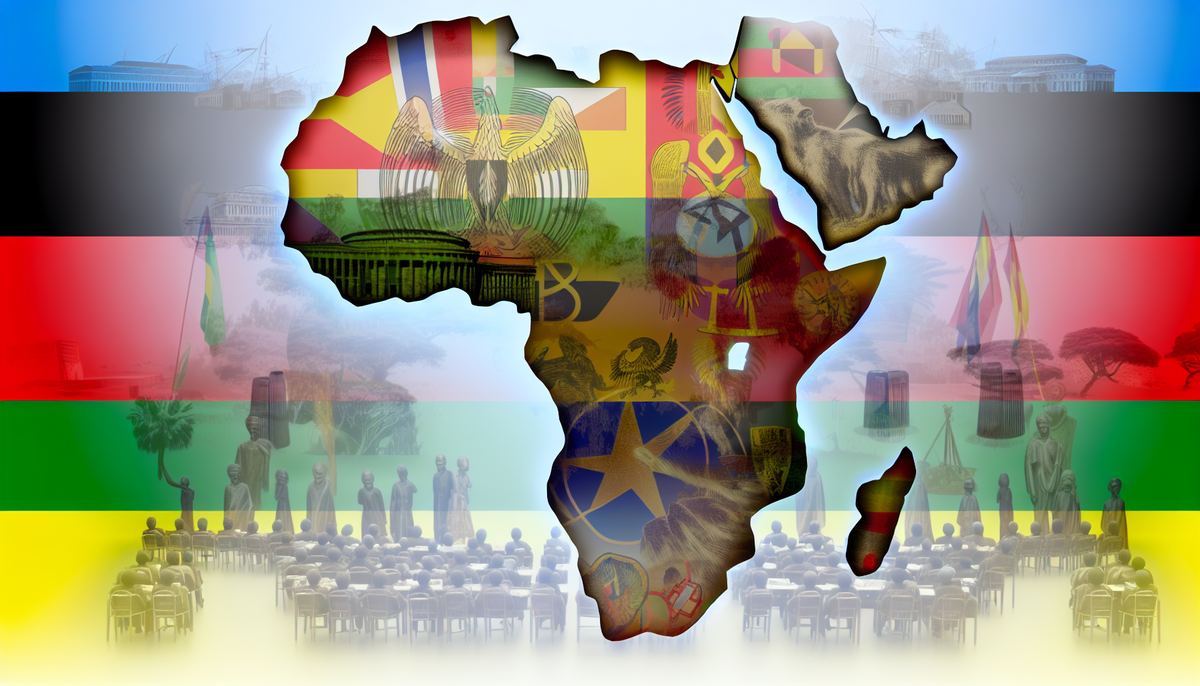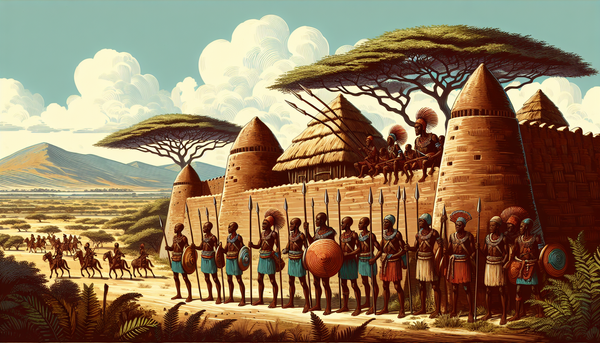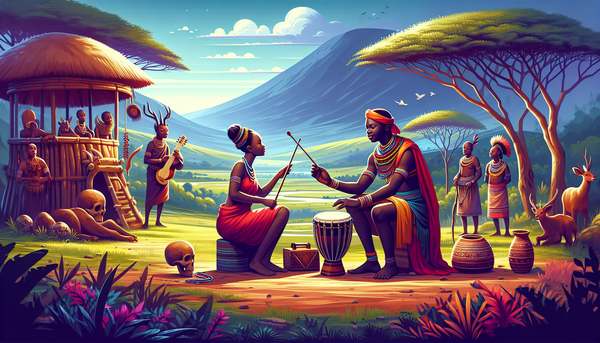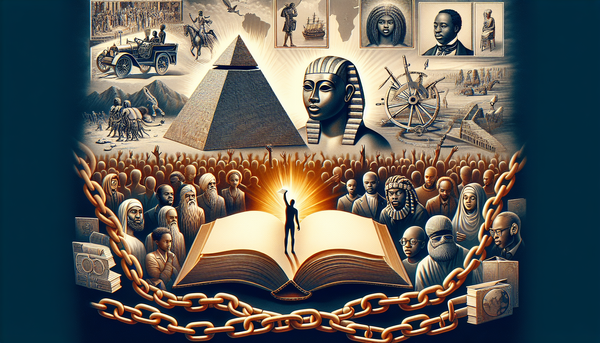The Impact of the Berlin Conference on African Nations

The Berlin Conference of 1884-1885 was convened by European colonial powers to establish guidelines for the colonization of Africa. At the time, European nations were in a race to claim territories in Africa for economic, political, and strategic reasons. The main objective of the conference was to prevent conflicts among European powers over African territories by setting clear rules for colonization. This led to the carving up of Africa into colonies without considering the cultural, ethnic, or historical boundaries of the indigenous African societies. The conference aimed to regulate the expansion of European empires in Africa and ensure a peaceful division of the continent among the colonial powers. However, the decisions made at the Berlin Conference had severe consequences for African nations, as they were exploited for their resources and subjected to oppressive colonial rule. The legacy of the Berlin Conference continues to impact Africa's socio-political landscape to this day, shaping the continent's history and relationships with former colonizers.
The colonial repercussions of the Berlin Conference were profound and lasting, leading to the redrawn boundaries of African nations that still shape the continent today. European powers arbitrarily divided Africa into territories based on their economic interests without regard for the existing tribal or ethnic boundaries. This artificial carving up of the continent resulted in the disruption of traditional societies and the forced coexistence of rival groups within newly created borders. The imposition of colonial rule brought with it exploitation, oppression, and the extraction of resources to benefit the colonial powers at the expense of indigenous populations.
The redrawn boundaries of African nations often ignored ethnic or cultural affiliations, creating artificial states that struggled to accommodate diverse populations with complex historical relationships. This arbitrary division led to internal conflicts, power struggles, and the perpetuation of instability in many African countries. The legacy of these redrawn boundaries continues to impact African nations, contributing to ongoing political, social, and economic challenges as they navigate the complexities of post-colonial identity and governance.
The economic exploitation and resource extraction that followed the Berlin Conference had devastating effects on African nations and their people. Colonial powers viewed Africa primarily as a source of raw materials and labor to fuel their industrial economies, leading to the exploitation of natural resources such as minerals, agricultural products, and timber. The colonial administrations implemented extractive economic policies that prioritized the interests of the European metropoles over the development and well-being of African societies.
Resource extraction was carried out through coercive labor practices, including forced labor and the imposition of exploitative trade arrangements that benefited the colonial powers at the expense of local communities. African economies became heavily dependent on the export of raw materials, leading to the underdevelopment of domestic industries and perpetuating a cycle of economic dependency.
The legacy of economic exploitation and resource extraction continues to shape the socio-economic landscape of many African countries, as they grapple with the challenges of rebuilding their economies, diversifying their industries, and reclaiming control over their natural resources.
The cultural displacement and identity conflicts resulting from the colonial era, particularly the impact of the Berlin Conference, have had profound and enduring effects on African societies. The arbitrary boundaries imposed by colonial powers divided ethnic groups, disrupted traditional ways of life, and marginalized indigenous cultures. This led to cultural displacement as communities were forcibly relocated, traditional practices were suppressed, and languages and customs were undermined.
The imposition of foreign languages, religions, and systems of governance further contributed to a loss of cultural identity and a sense of belonging among many African peoples. Additionally, the introduction of Western education and social structures often led to the alienation of indigenous populations from their heritage and identity.
Identity conflicts emerged as different ethnic groups found themselves coexisting within newly drawn borders, often leading to tensions, power struggles, and violence. The legacy of cultural displacement and identity conflicts continues to manifest in contemporary Africa, influencing social dynamics, political discourse, and inter-community relationships as nations strive to reclaim, preserve, and honor their cultural heritage in a post-colonial context.
Resistance movements and anti-colonial struggles emerged in response to the oppressive colonial rule and exploitation that followed the Berlin Conference. African nations and communities, faced with the loss of autonomy, cultural suppression, and economic exploitation, began to organize resistance against the colonial powers. These movements took various forms, including armed uprisings, political protests, and cultural initiatives aimed at preserving indigenous traditions and identities.
Led by indigenous leaders, intellectuals, and grassroots activists, resistance movements sought to challenge the legitimacy of colonial authority, demand self-determination, and reclaim control over their land, resources, and governance. Through acts of defiance, nonviolent resistance, and armed struggle, these movements galvanized support from within their communities and garnered international solidarity in their fight against colonial oppression.
The legacy of resistance movements and anti-colonial struggles is a testament to the resilience, courage, and determination of African peoples to resist subjugation, uphold their dignity, and assert their right to autonomy and self-governance. These movements laid the groundwork for the eventual decolonization of Africa and the establishment of independent nations, marking a pivotal moment in the continent's history of liberation and self-determination.
The post-colonial legacy left by the Berlin Conference continues to shape the socio-political landscape of Africa and present significant challenges for the continent. Decades after gaining independence, many African nations still grapple with the enduring effects of colonialism, including economic disparities, political instability, social divisions, and cultural disruptions. The arbitrary borders drawn by colonial powers have contributed to internal conflicts, ethnic tensions, and struggles for power and resources within and between nations.
Furthermore, the legacy of economic exploitation, resource extraction, and unequal trade relationships persists, hindering efforts for sustainable development and economic independence. The impact of cultural displacement, identity conflicts, and the erosion of indigenous traditions continues to challenge the construction of inclusive national identities and social cohesion.
Contemporary Africa faces multifaceted challenges, including poverty, corruption, inadequate infrastructure, environmental degradation, and health crises, exacerbated by historical injustices and colonial legacies. Addressing these challenges requires comprehensive strategies that prioritize economic empowerment, social justice, cultural preservation, good governance, and sustainable development to build resilient and inclusive societies that honor the diversity and richness of Africa's heritage.
The Berlin Conference and its aftermath had a profound impact on international relations and diplomacy, reshaping the geopolitical landscape and setting the stage for future interactions between European powers and African nations. The scramble for Africa highlighted the ruthless pursuit of economic and strategic interests by colonial empires, leading to competition, rivalries, and shifting alliances among European states. The diplomatic negotiations and agreements made during the conference set a precedent for the partitioning of territories through colonial conquest, disregarding the sovereignty and self-determination of African peoples.
The colonial legacy established power dynamics that continue to influence global relations, as the consequences of imperial domination, resource exploitation, and cultural marginalization reverberate in contemporary diplomatic discourse. The struggle for independence and decolonization movements in Africa reshaped international relations, challenging the legitimacy of colonial powers and fostering alliances between newly independent states against continued imperialistic ambitions.
The enduring legacy of the Berlin Conference underscores the importance of recognizing historical injustices, promoting mutual respect, and fostering equitable partnerships in international relations. Addressing the consequences of colonialism requires a commitment to reconciliation, cooperation, and diplomacy that respects the sovereignty and agency of all nations in shaping a more just and inclusive global community.



